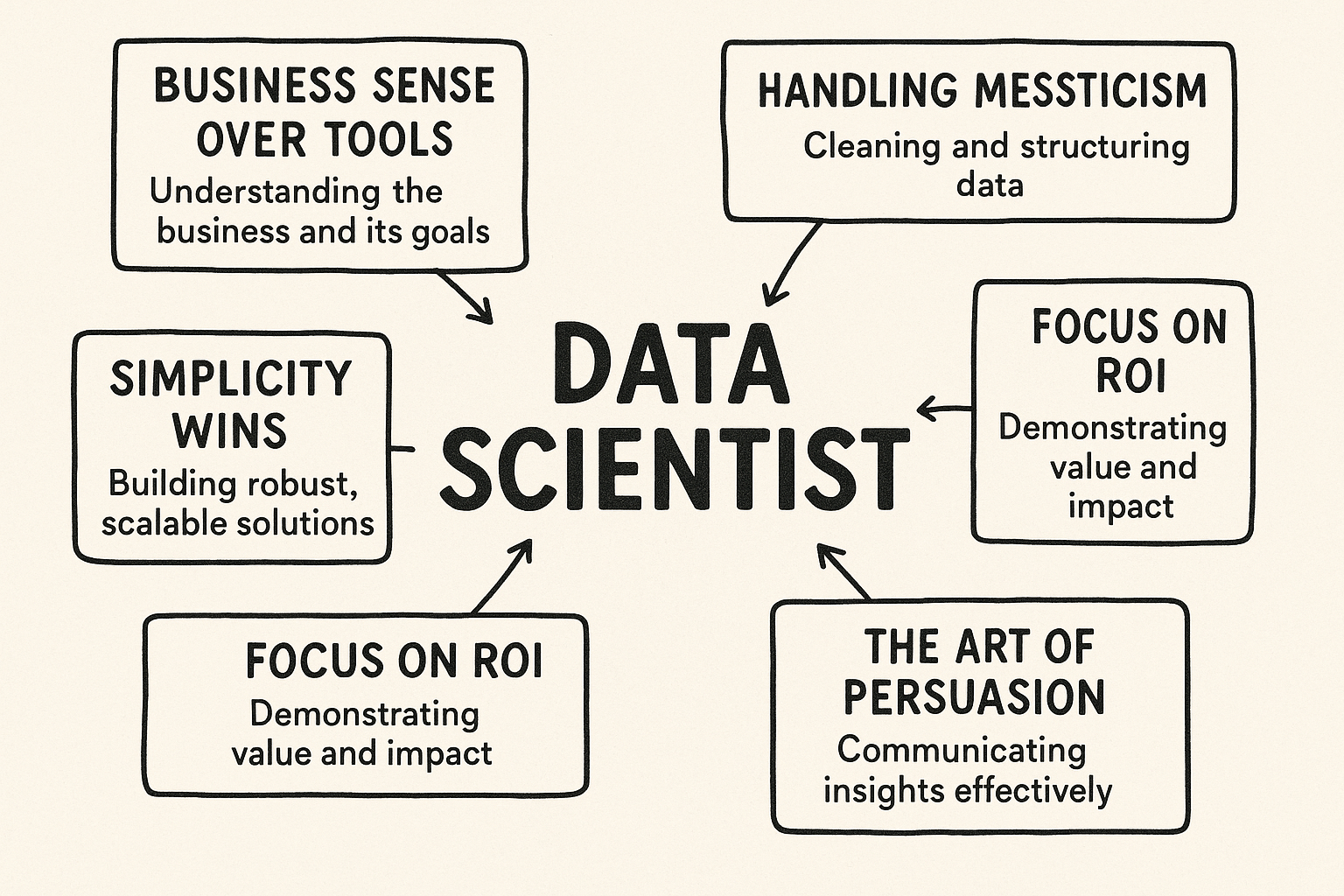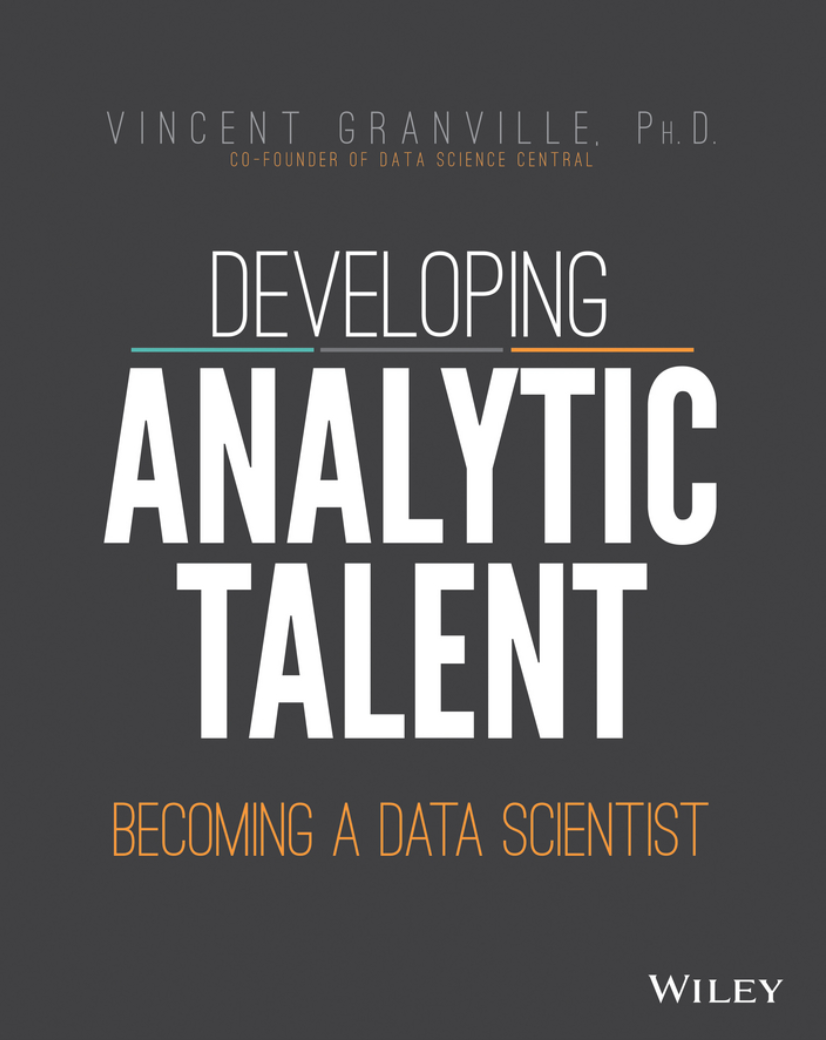The term "data scientist" is surrounded by myths. Many think you need to master every tool—NoSQL, MapReduce, neural networks, PySpark—to earn the title. But it’s not about tools. It’s about solving problems. Here’s what really matters to be a data scientist, plus some thoughts I’ve had while exploring this field.

-
Business Sense Over Tools
Tools like Hadoop or Kafka come and go. What lasts is understanding the business. A data scientist asks: What problem are we solving? How does this align with company goals? If you can’t turn a manager’s vague idea into a data-driven question, even neural networks won’t help. -
Handling Messy Data
Real-world data is messy—think 50-million-row CSV files with missing values and duplicates. If you panic, this field isn’t for you. Cleaning and structuring data to find meaning is a core skill. Dirty data can ruin even the best models. -
Healthy Skepticism
Models can mislead. A good data scientist questions everything: Is this correlation causal? Are we overfitting? Does the training data reflect reality? A “99% accurate” churn prediction model is useless if it fails in production. -
Simplicity Wins
Fancy models like deep learning are impressive but fragile. Often, a linear regression works just fine. The skill is building simple, robust, and scalable solutions that run efficiently on basic infrastructure. -
Focus on ROI
Managers care about results. Show how your work boosts revenue, cuts costs, or improves retention. Calculate lift, ROI, or opportunity costs. No one funds “cool experiments” without a clear payoff. -
The Art of Persuasion
Convincing a manager to trust your analysis over their “gut feeling” is tough. Speak their language—focus on risks, rewards, and long-term wins. If you can’t sell your solution, it doesn’t matter how brilliant it is.

As I dive into data science, I’ve learned it’s not about creating a perfect virtual world. Data analysis helps us understand the real world better, but it’s always messy and incomplete. It’s like exploring a map with blurry spots—you get closer to the truth, but never see it all. This keeps me curious and reminds me to stay humble.
Forget chasing certifications or trendy tools. Focus on solving problems, communicating value, and staying curious. That’s what makes a true data scientist.
I like the question from the author. If you’re debating whether to learn PySpark or Kafka, ask: Will this help me answer the CEO’s next “Why are sales down?” question? If not, rethink your priorities.

comments (4)
please login to comment